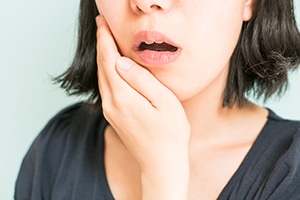Call now on0800 051 8069
Oral piercings and the impact on oral health
-
As oral piercings remain popular, and tongue piercings especially, Sam Swaby takes a look at the impact they can have on oral health.
I recently read on the Oral Health Foundation website that research [1] they carried out, found that tongue piercings are particularly popular, with 43% of people with oral piercings opting for them. 33% of people had a lip piercing, 3% with cheek and gum (7%) piercings much less common.
The research
The research shows that many people have oral piercings already and the charity wants to highlight the risks associated with getting an oral piercing. This is important to avoid the health problems that oral piercings are associated with.
CEO of the Oral Health Foundation, Dr Nigel Carter OBE, discussed the hazards which oral piercings can have on a person’s oral health.
Dr Carter said:
“Oral piercings are a major cause of chipped or cracked teeth due to trauma when they come into contact with the teeth; many people even have a habit of biting or playing with their piercing which can be extremely dangerous and can often lead to extensive dental work”
“The mouth also contains a huge amount of bacteria and is an ideal place for infection to arise, this is especially the case with new piercings as it is an open wound and needs constant care and attention to prevent infection. An infection can quickly lead to other more serious conditions such as blood poisoning (septicaemia).”
“The act of getting a piercing is itself very dangerous as if done incorrectly can cause issues such as permanent numbness of the tongue, blood loss, excessive swelling which affects breathing and swallowing and in severe cases and increased risk of HIV and Hepatitis B.”
Things to avoid with oral piercings
There are many things that are recommended to avoid or do, when you have an oral piercing. Some of these include:
- Not to play with your piercing, as this can cause permanent damage to oral structures
- Avoid chewing items, which could have bacteria present on them
- Avoid using mouthwash that has alcohol in it. The alcohol can irritate your piercing and delay healing
- Avoid smoking as this increases risks and lengthens the healing time
Summary
For those considering getting an oral piercing it is important that you make yourself aware of the associated risks. It is also equally important that you have the piercing carried out at a reputable establishment to avoid potential problems.
Once you have a piercing it is even more advisable to maintain a good oral hygiene regime and ensure that you visit the dentist regularly for check ups. The charity also recommends that if you are undertaking sports activities, to remove the piercings to avoid any damage.
[1] Oral Health Foundation (2016) Your Say Survey Question, ‘What kind of oral piercing do you have?’ Sample 214.







